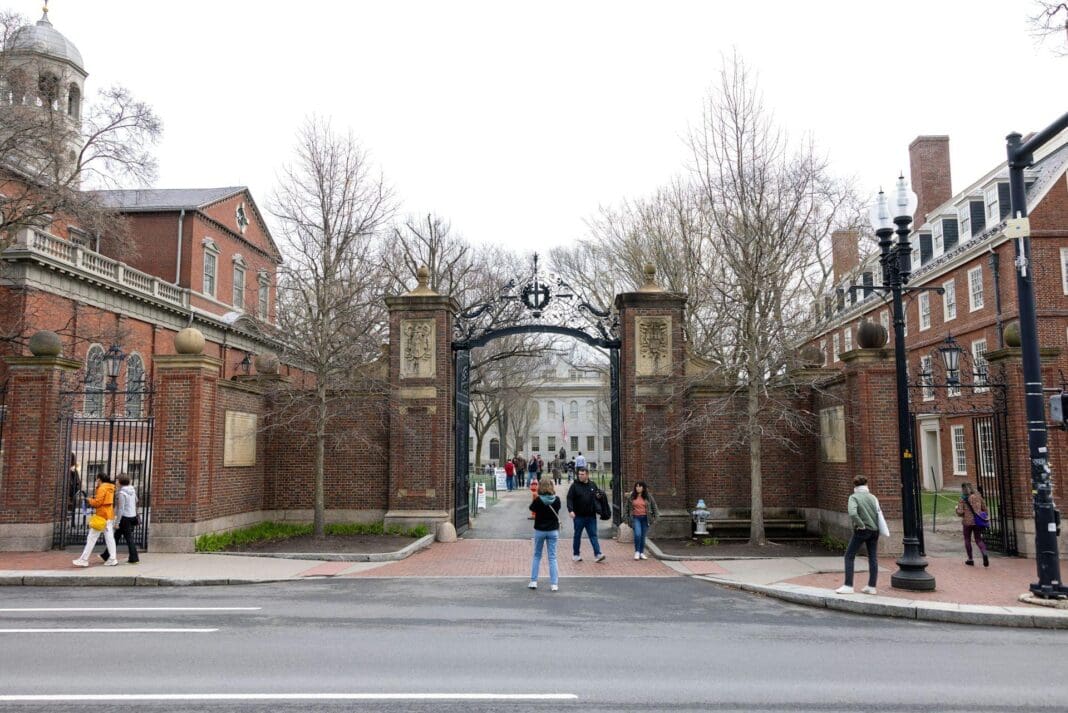President Donald Trump has repeatedly threatened to revoke Harvard University’s tax-exempt status, and some media outlets have reported that the Internal Revenue Service is taking steps in that direction.
Harvard President Alan Garber says this would be “highly illegal.” Several U.S. senators, all Democrats, have urged the IRS inspector general to see whether the IRS has begun auditing Harvard or any nonprofits in response to his administration’s requests or whether Trump has violated any laws with his pressure campaign.
The Conversation U.S. asked Philip Hackney, a nonprofit law professor who previously worked in the office of the chief counsel of the IRS, and Brian Mittendorf, an expert on nonprofit accounting, to explain what it would take for the federal government to revoke a university’s tax-exempt status.
No.
First, the IRS rarely revokes an organization’s charitable tax-exempt status for failure to operate for a charitable purpose.
Before the IRS can do that, tax law requires that it first audit that charity. And it’s illegal for U.S. presidents or other officials to force the IRS to conduct an audit or stop one that’s already begun. Even doing either of those things indirectly is a crime. The punishment can include fines and imprisonment.
Congress strengthened constraints on presidential power after Richard Nixon resigned in the midst of the Watergate investigations. At the time, evidence indicated that he had used the IRS as a weapon to punish his perceived political enemies.
Worried that future presidents or officials might abuse the IRS, a Republican-led Congress later passed Section 7217 of the IRS Restructuring and Reform Act of 1998.
That provision prohibits presidents and vice presidents, as well as other officials and their staff, from instructing, “directly or indirectly, any officer or employee of the Internal Revenue Service to conduct or terminate an audit or other investigation of any particular taxpayer with respect to the tax liability of such taxpayer.”
This can’t happen on a whim. The IRS first has to audit the nonprofit. If it obtains evidence of wrongdoing – and a court upholds that finding – the IRS can proceed.
The government has to find that the nonprofit’s operations have a “substantial nonexempt purpose.” That’s because these tax exemptions are provided only to organizations that are organized and operated primarily for charitable purposes, such as education, religion or scientific research.
Any audit of Harvard would involve a large team of IRS agents familiar with higher education, which would work on this probe for months. The process could take years.
If, after completing that audit, that team were to determine that Harvard violated the rules, the IRS would have to send Harvard a proposed revocation letter. Harvard then would have 30 days to file an appeal with the IRS. Were the IRS to propose such a revocation, we would be shocked if Harvard didn’t take that step.
If the IRS Office of Appeals were to uphold the revocation, the IRS would send a revocation letter to Harvard. But Harvard would have the right to challenge that official revocation in court under Section 7428 of the tax code.
Very rarely. Almost never for private schools. The only legal precedent the Trump administration could perhaps invoke is Bob Jones University v. United States.
That litigation got underway in the 1970s after the IRS had, following years of civil rights litigation, stopped allowing private schools to have charitable status if they discriminated on the basis of race.
That policy put the small Christian university on the spot because it barred the admission of Black students until 1971. At that point, it began to accept Black students but only if they were married to another Black person. The school justified this restriction by voicing its belief that the Bible forbids interracial marriage and dating. In 1970, the IRS had notified the university that it intended to cancel Bob Jones’ tax-exempt status.
The IRS issued a final revocation in 1976 after determining that Bob Jones University continued to discriminate with the ban on interracial dating and marriage. And in 1983, the U.S. Supreme Court upheld the IRS’ action in an 8-1 decision.
The court’s majority wrote that an institution should be denied charitable status “only where there can be no doubt that the activity involved is contrary to a fundamental public policy.”
Many signs indicate the Trump administration would try to use the fundamental policy limitation to revoke Harvard’s status. We’re unaware, though, of what alleged violation of a “fundamental public policy” the IRS might invoke if it were to carry through on Trump’s threat to strip Harvard of its charitable status. The Trump administration has signaled that it might rest its case on Harvard’s diversity, equity and inclusion programs.
In a related case, a majority found in a 2023 ruling that affirmative action admissions programs violated the Constitution. The case, known as Students for Fair Admissions v. President and Fellows of Harvard College, also considered the University of North Carolina’s policies.
Harvard subsequently enrolled fewer new Black students, indicating that it had changed its admissions policies. Regardless, there are many precedents finding elements of diversity, equity and inclusion to be activities that do further a charitable purpose.
We believe the Trump administration would be unlikely to prevail in the courts with an anti-DEI argument should it try to use one to justify stripping Harvard of its tax-exempt status.
Losing nonprofit status can do a lot of damage.
An organization that loses its status, whether it’s a university like Harvard, a food bank, a homeless shelter or any other kind of charity, is suddenly subject to federal income tax. It also loses the ability to receive tax-deductible gifts from donors who are eligible to make them.
Because many state and municipal tax breaks are tied to federal tax status, losing tax-exempt status can also lead to local tax penalties. One compelling local tax break afforded to many charities is an exemption from property tax. Universities with large amounts of buildings and land – as Harvard has – would especially feel the pain.
Without charity status, organizations that rely on grants from local, state and federal government sources, as well as private sources such as other charities, will find many of those sources of funding largely cut off. This is because many grant providers require all recipients to have tax-exempt status.
The Internal Revenue Manual, which guides IRS agents in carrying out their work, indicates a number of other problems that would arise after revocation. For instance, an agent is required to consider the impact on the organization’s deferred compensation plans and tax-exempt bonds.
There’s been little concrete information about the basis for Harvard losing its status. Most of what we know comes from social media posts and media interviews.
The Trump administration has attacked Harvard for its efforts to increase its diversity and its response to antisemitism on its campus. In response to concerns about these issues, Harvard has retooled its DEI office and begun to roll out reforms to combat both antisemitism and anti-Muslim bias.
But it is hard to argue that these issues would be central to Harvard and its educational mission, let alone warrant it losing its tax-exempt status.
Given the steep climb it would be to prove that the organization has strayed from its educational mission, and not just taken some actions the White House dislikes, we find it hard to imagine a viable path toward the IRS revoking Harvard’s charitable status.
That doesn’t mean there will not be any consequences from the administration’s campaign against Harvard.
The daily onslaught of public attacks coupled with the ongoing legal battles are a drain on Harvard officials’ time and energy.
The administration has put Harvard and other universities on the defensive in many other ways too. It has cut federal funding for scientific research, sought to revoke international student visas, expressed an interest in reducing federally funded student loans and grants, and floated proposals to increase what is today a small tax on the income some higher education endowments earn.
If there’s a silver lining for Harvard, we think it’s that Trump’s attacks could spur giving to the nation’s wealthiest university, at least in the short run. Harvard’s supporters stepped up their donations after the administration’s initial efforts to punish Harvard. And giving-as-activism has been a frequent theme in both of Trump’s terms.
This article is republished from The Conversation, a nonprofit, independent news organization bringing you facts and trustworthy analysis to help you make sense of our complex world. It was written by: Philip Hackney, University of Pittsburgh and Brian Mittendorf, The Ohio State University
Read more: A 2003 Supreme Court decision upholding affirmative action planted the seeds of its overturning, as justices then and now thought racism an easily solved problem Endowments aren’t blank checks – but universities can rely on them more heavily in turbulent times With federal funding in question, artists can navigate a perilous future by looking to the past
The authors do not work for, consult, own shares in or receive funding from any company or organization that would benefit from this article, and have disclosed no relevant affiliations beyond their academic appointment.














